Enough to put a primetime college football game on hold, and not just between any two teams....it was Ole Miss and Alabama from Birmingham's Legion Field!
Here's the whole story written by Doug Segrest from the Birmingham News.
The night Lawrence Welk put Legion Field on hold
Friday, October 09, 2009
DOUG SEGREST
News staff writer
The lights above Legion Field glowed, ABC's cameras were poised, and coaching legends Bear Bryant and Johnny Vaught stood on opposite sidelines.
Oct. 4, 1969. Alabama and Ole Miss were ready to go prime time. But there was a holdup.
His name was Lawrence Welk.
The bandleader had a popular music show every Saturday night at 7 on ABC and his contract didn't allow the network to pre-empt him. So Alabama, Ole Miss, a full house at Legion Field and millions more watching at home waited for Welk to say goodnight and for the network to switch to Birmingham at 8 p.m.
The wait was worth every minute. As the same teams square off this week, the first nationally televised game in Saturday prime time remains a classic 40 years later.
"I didn't think Legion Field held but 63,000 (fans), but in all the times I've gone back to Birmingham I've had a couple of hundred thousand who said they were there," said Archie Manning, Ole Miss' star quarterback.
What was supposed to be a defensive slugfest turned offensive football on its ear. Manning and Alabama's Scott Hunter dueled like gunslingers. On a night that shattered records, Alabama raced back twice in the fourth quarter from deficits, with Bryant bypassing a certain field goal for a fourth-down gamble.
If you were there, either at Legion Field or in front of your TV set, you probably remember every play. It was an event, not only for the teams that played but also for the teams that didn't.
After riddling Kentucky for two touchdowns and 200 yards passing in an afternoon rout on The Plain, Auburn quarterback Pat Sullivan joined his teammates to watch two bitter rivals face off that night.
"It was a big deal, because there was only one game a week on (TV) and never at night," Sullivan reminisced. "I remember how exciting it was, and for me, it was the first time watching Archie play. We ended up becoming great friends."
In Boston, Bama alum Joe Namath took a hit to his reputation as the NFL's No.1 playboy to stay in his hotel room, breaking curfew while watching a game that ended near 1 a.m. in his time zone.
"Joe told me he stayed up the whole time," Hunter recalled. "The next day, the Jets played the Patriots. And when everyone went to party after the game, he went back to his room and went to sleep."
Game plans dropped:
Even after Lawrence Welk finally stepped aside, the suspense built. ABC wanted to capture all the pregame pageantry. The Million Dollar Band played the national anthem and, one by one, the starters on each team introduced themselves.
Finally, around 8:20 p.m., the game kicked off. And Bryant, stalking the Alabama sideline, learned the Ole Miss he'd planned for didn't resemble the one on the field.
"We lost a one-point game to Kentucky the week before, when we sat on it and ran the power I," Manning said. "I don't think I ever accused Coach Vaught of a bad game plan except that one time. Because we tried to save our best stuff for Alabama."
That stuff meant Manning passing at will and running with abandon. For Jeff Beard and the Alabama defense, it was a nightmare on Graymont.
Beard, the Tide's sophomore middle guard from Bessemer, learned quickly that a week's preparation was out the window.
"The biggest problem was Archie Manning was fleet on his feet," Beard said. "The other thing I noticed was he had two styles. He'd either drop back and pass quick and you didn't have time to drop the quarterback. Or, if you got near him he'd pull the ball down, he made reverse turns and he'd get away. He'd lose 5 or 10 yards to scramble away from you and then find a receiver."
The first half was a flurry of aerials, yet it ended with Alabama leading by a mundane 14-7 score.
Back in New York, the suits at ABC were nervous. The game had been picked by a three-man panel, which included Beano Cook, the previous April.
For any network, broadcasting college football was risky then. The Super Bowl was played during the day, Monday Night Football was 11 months from its debut and even most World Series games were played in the sunshine.
And while Lawrence Welk was popular, he wasn't quite the lead-in ABC wanted.
Yet as the night dragged on, the game heated up and the viewer numbers actually increased.
"Without question, it was a huge game because Archie Manning was a draw, and Alabama had both The Bear and a brand name," said Mike Aresco, the vice president of programming for CBS Sports.
"If you do a game like that and it doesn't work, it might have dampened the enthusiasm for years to come. Yet it became an iconic game because it established college football as legitimate, prime-time entertainment."
Fourth-down gamble:
Give Manning and Hunter much of the credit.
Manning finished the night with NCAA records for passing yards (436), pass attempts (52), completions (33) and total offense (539) while accounting for four touchdowns.
"He was Superman that night," Hunter said
Manning's opposite set a Crimson Tide record with 300 yards passing. Hunter brought Alabama back from a 26-20 deficit with a quarterback sneak midway through the fourth quarter. After Ole Miss scored again, Bryant put the game squarely on Hunter's shoulders one last time.
Less than four minutes remained. At the Ole Miss 14, Alabama faced a fourth-and-long when Hunter called a timeout.
Hunter conferred with Bryant and assistant Jimmy Sharpe on the sideline. In the press box, offensive coordinator Steve Sloan joined in, but didn't offer a fourth-down play.
As the meeting broke, "Coach Bryant shouted, `Run the best play you got,'" Hunter recalled.
Hunter had an immediate idea. When he got to the huddle, receiver George Ranager said he wanted the ball.
When Ole Miss blitzed, running back Johnny Musso cut a defender just before he planted Hunter in the Legion Field turf. As the pass zipped toward Ranager inside the Ole Miss 5, a Rebels defender made early contact, drawing a flag.
Somehow, Ranager caught the ball, shook free and sprinted into the end zone, tying the game at 32-32. The extra point made it 33-32.
With Bryant now subbing on defense - he moved offensive guard Alvin Samples to the defensive line for the final two series - the Tide stopped Ole Miss from mounting its own comeback.
Hunter found Manning after the final gun. The Ole Miss quarterback had tears in his eyes. Ole Miss went on to have a solid season, upsetting Tennessee later in the season, but the 1969 Alabama game lingers.
"Ole Miss fans will tell you they remember the Tennessee game, but this is the one that sticks with you," Manning said. "It was a great game with one exception - we lost. We had over 700 yards ... yet we lost."
The Alabama locker room was jubilant, despite the fatigue from the game and the hour. For Beard and the Tide defenders, celebration was short-lived.
"The best I remember, Coach Bryant wasn't real pleased with the defense. Neither was Ken Donahue, our defensive coordinator," Beard said. "We paid for it the next week. You don't let that many points be scored unless you were willing to be scolded."
Had the game been ordinary, the prime-time experiment may have been one and done. Instead, college football now pervades the airwaves, two or three nights a week.
"I'd like to think we jump-started something," Manning said. "It really was something special."
And the moral of the story? The Maestro is the boss, even a legend like Coach Bryant and all college football fans realize that.
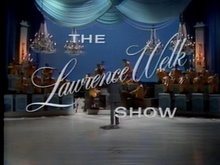





















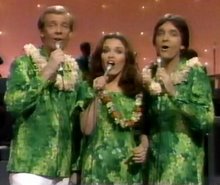
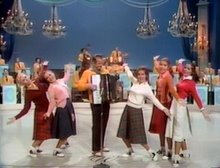

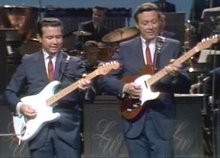

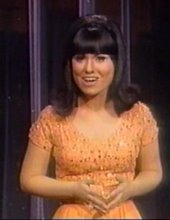







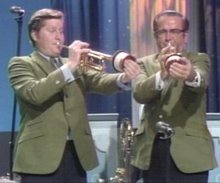






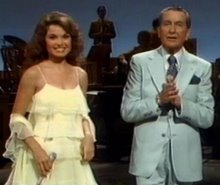
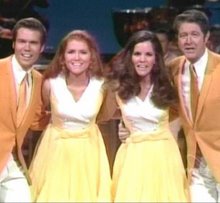

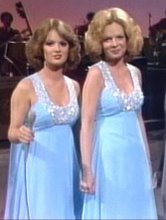






















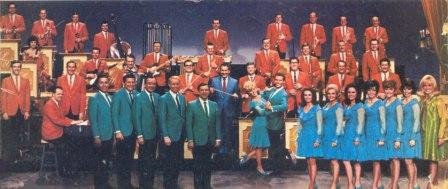


No comments:
Post a Comment